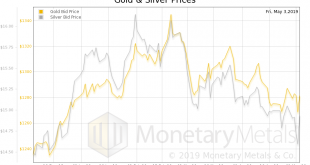Over the past several weeks, we have debunked the idea that purchasing power—i.e. what a dollar can buy—is intrinsic to the currency itself. We have discussed a large non-monetary force that drives up prices. Governments at every level force producers to add useless ingredients, via regulation, taxation, labor law, environmentalism, etc. These are ingredients that the consumer does not value, and often does not even...
Read More »“Sinnvoller wäre, den Benzinverbrauch zu besteuern (Better Tax Carbon Emission),” Der Bund, 2019
Der Bund. March 5, 2019. HTML. Short newspaper interview about corrective taxes, tackling problems at the root, and equity vs. efficiency.
Read More »“Sinnvoller wäre, den Benzinverbrauch zu besteuern (Better Tax Carbon Emission),” Der Bund, 2019
Der Bund. March 5, 2019. HTML. Short newspaper interview about corrective taxes, tackling problems at the root, and equity vs. efficiency.
Read More »Deposit Insurance: Economics and Politics
On VoxEU, Charles Calomiris and Matthew Jaremski discuss the origins of bank liability insurance. They argue that it is redistribution, not the aim to boost efficiency, which explains a lot of the action. … there are two theoretical approaches to explaining the creation and expansion of deposit insurance. The first is an economic approach grounded in potential efficiency gains from limiting bank runs (i.e. the public interest motivation). The second is a political approach grounded in the...
Read More »Efficiency versus Equity
On VoxEU, Torben Andersen and Jonas Maibom point out that empirical findings of a positive correlation between efficiency and equity need not contradict elementary theoretical predictions. The trade-off [between efficiency and equity] applies at the frontier of the possibility set of combinations of economic performance and income equality available to policy makers. If policies and institutions are ‘well-designed’, the country is at the frontier. There is no free lunch and a trade-off...
Read More » Swiss Economicblogs.org
Swiss Economicblogs.org

